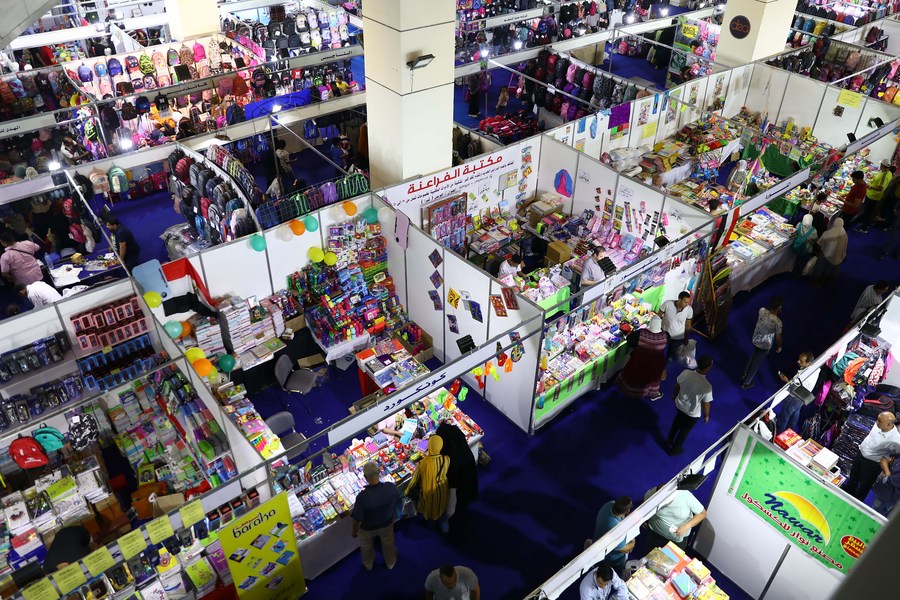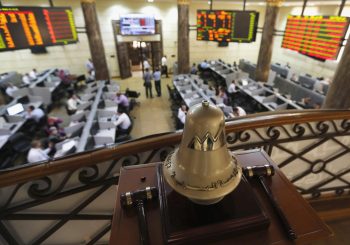School supplies have become significantly more expensive this year, forcing families like Layla Hassan’s to cut back on purchases. As a 55-year-old mother of two pre-secondary students, Hassan chose to rely on leftover pens and supplies from the previous year, buying only a couple of new notebooks.
Her experience reflects the financial strain many Egyptian parents face, as prices for school supplies and stationery have risen by five to 10 percent, according to the Head of the Stationery Division at the Cairo Chamber of Commerce, Ahmed Abu Gabal.
Mohamed El-Safty, deputy head of the Stationery Division, attributed the price increase to the rising exchange rate of the dollar, which has led to higher production costs for school supplies.
“While the exchange rate has significantly increased since the devaluation of the Egyptian pound in March, school supply prices have not risen at the same rate, as previous prices were already affected by a parallel dollar rate that had soared to EGP 40 (USD 0.83),” El Safty explained.
Mariam Hamdy, a 41-year-old mother of a primary school student, told Egyptian Streets that the price hikes have definitely had an impact on her purchasing power and habits.
“I only bought exactly what is necessary,” she said. “I used to buy in bulk—different styles, colors, anything I liked. I wouldn’t settle for just one.”
She emphasized that the rising costs have changed her approach to shopping for school supplies, and said, “Even if I splurge on something cute my child likes, I think twice before buying it.”
Hamdy noted that lunch boxes, flasks, and other school supplies saw significant price increases, but the hike was not as sharp as the previous year. She added, “Compared to three years earlier, there is a huge and big increase in prices.”
This year, prices for notebooks and workbooks specifically have experienced a notable increase of 40 percent to 50 percent compared to the previous year. The cost varies based on the quality of materials and the number of pages. For example, a standard workbook is priced differently from a wire-bound version, with prices ranging from EGP 60 (USD 1.24) to EGP 65 (USD 1.34) for a 60-page wire-bound notebook, while an 80-page hard-cover sketchbook can cost up to EGP 80 (USD 1.65).
The General Division of Paper Traders and owners of the Printing Presses Division at Cairo Chamber of Commerce have attributed this sharp rise in prices to the increase of paper prices, as paper suppliers increased their rates to recover from previous losses, further straining the budgets of families preparing for the new school year.
Sahar Mahmoud*, a private school supervisor who wishes to remain anonymous, disclosed that her school, which she also prefers not to name, provides students with a supply list for each academic year. This year’s list includes printer paper, Canson sheets, A4 paper, board markers, six packs of 550 tissues, foam sheets, glue sticks, and various craft items.
“I think it’s absurd for a K-12 school that covers all levels of education to ask each student to buy packs of tissue and printing paper,” Mahmoud told Egyptian Streets.
“Why would a private school, which charges significant tuition fees, fail to provide tissues or printing paper for their students?” she said, noting that the school would save a significant amount of money from countries such as China, Indonesia, and Germany, a statement from the Stationery Division revealed. This heavy reliance on imports contributes significantly to price increases, as the country depends on only 40 percent of local production.
“The prices of school supplies have been steadily rising each year, largely due to their being imported and the consistent depreciation of the Egyptian Pound against the US dollar,” Sherine Ahmed, a 38-year-old mother of two primary school students, expressed a different perspective to Egyptian Streets.
Prices climbed in August, driven by rising summer produce costs, a 10 to 15 percent fuel hike in late July, a 25 to 33 percent increase in metro fares at the start of the month, and a 21 to 31 percent rise in electricity tariffs, partially implemented in August.
Additionally, Egypt’s annual urban consumer price inflation rate unexpectedly increased to 26.2 percent in August, up from 25.7 percent in July, according to the Central Agency for Public Mobilization and Statistics (CAPMAS).
“However, there is still a variety of options available, along with a wide range of prices for these items,” Ahmed shared, noting that while prices vary from store to store, her family opts to purchase everything in one place, as the savings would be marginal.
“We prioritize quality, even with the rising costs, because we know these items will last through the year without falling apart,” she said, explaining that they would rather invest in durable goods than risk buying cheaper alternatives that would need replacing, ultimately costing more in the long run.
To soften the blow on families, Alaa Adel, deputy head of the Stationery Division at the Cairo Chamber of Commerce, advised shopping at commercial markets or retailers offering discounted school supplies, such as El-Faggala Stationery Store, to suit different budgets.
Adel explained that school supplies are crucial for students’ academic success, and advised parents to fulfill all their children’s school supply needs according to their educational level to ensure they are fully prepared for all required academic tasks.
*Names have been changed to protect the privacy of the individuals.







Comments (0)